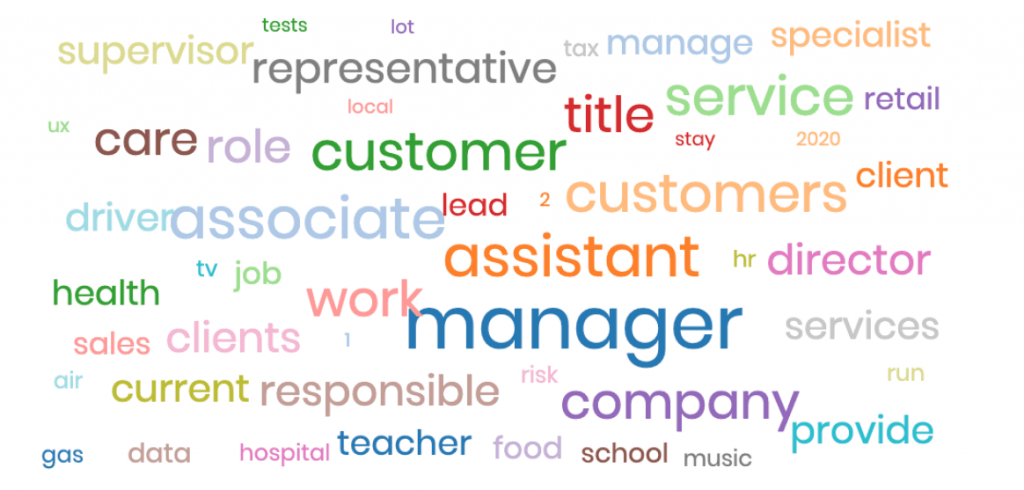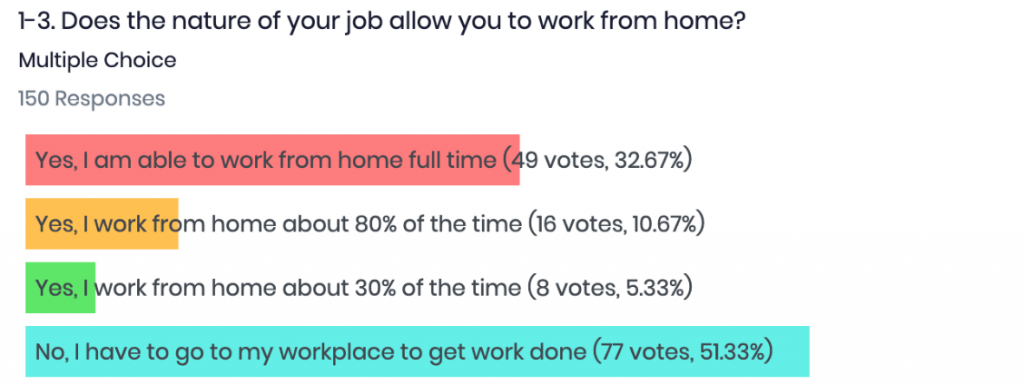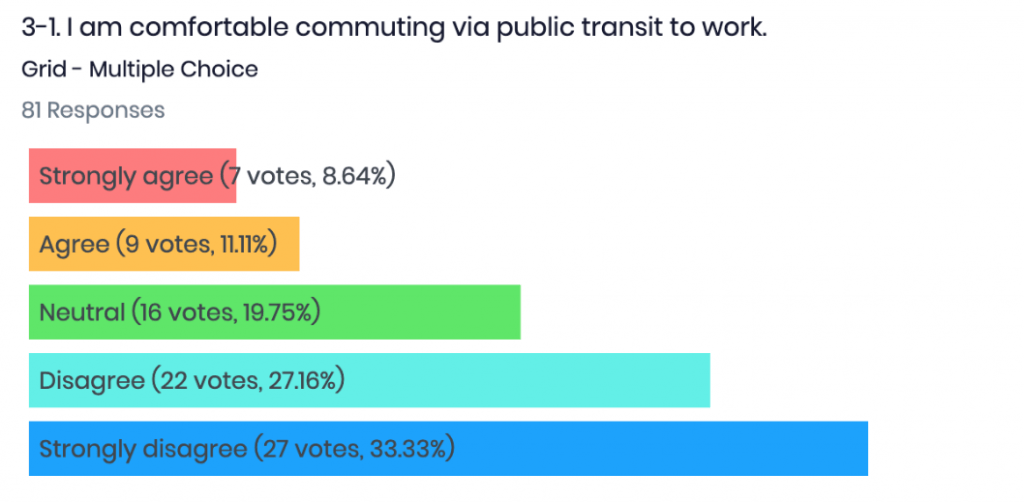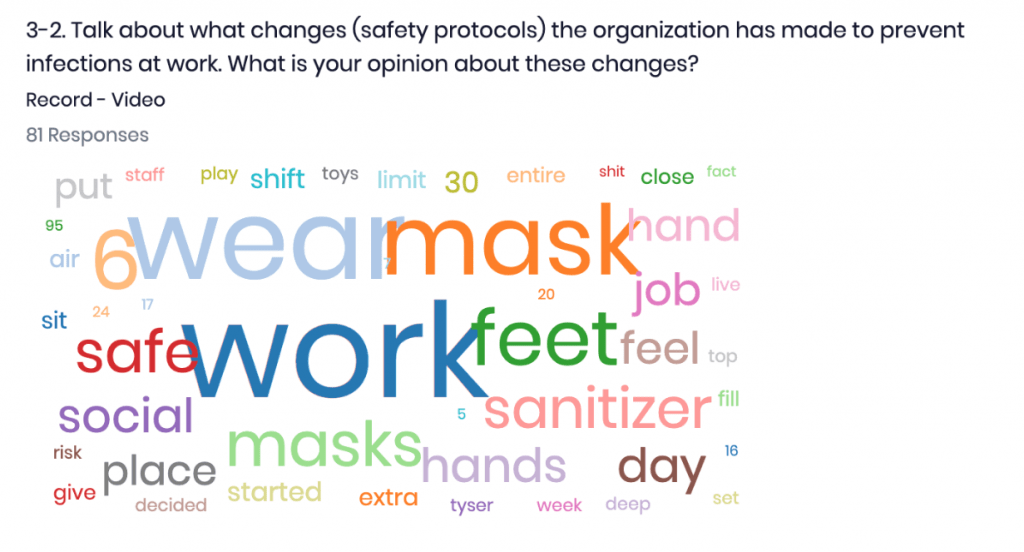It’s an understatement to say that 2020 has been one of the most challenging years in modern times. The coronavirus impact in our world has changed life as we know it, for the worse but also for the better. In order to move forward and adapt, it’s vital that we understand exactly what our challenges are and how to overcome them.
Thankfully, methinks is in the business of figuring out the 3 w’s: the who, the what and the why. Therefore, it’s no surprise that we also wanted our Thinkers to voice out their concerns, so that we can understand more how this pandemic is affecting our community from within.
Back in March, right at the beginning of shelter-in-place in California and other lockdown arrangements throughout the US, we hosted a Thinker Poll to comprehend which concerns people deemed the most important and how COVID-19 was affecting their everyday lives. You can check out our blog post with detailed results here. Now, 5 months later, we’ve decided to host another research project to understand how/or if participants’ view of our “new normal” has shifted, how diverse workplaces have been taking measures to support remote work, and if participants feel safe going back to in person work anytime soon.
For this research project, 150 people completed our survey, which included multiple choice questions, open ended responses, and video recording answers.
Work situation during COVID-19
In this section of our study we wanted to understand how COVID-19 has impacted participants’ work status. For that, we asked participants about their role, industry, concerns about COVID-19 affecting their company, and availability to work from home. As this survey targeted the general population, our participants’ wide variety in occupation and industry diversified our poll of answers. We had participants from all industry sectors, below is a visual representation of that based on the most used words.

We also asked our 150 participants on scale from 1-10 (10 being the highest) how worried they were about COVID-19 affecting their industry, and this is what we found from their answers:
- Median 6.5
- Mean 6.06
- Deviation 2.58
Based on that we conclude that slightly more than half of the participants are concerned about their industry being affected.
Work from home
We’ve also got a mixed bag of participants that are able to work from home full time, partially and others that need to work in person.

We also asked the participants who are able to work remotely, if they are more productive at home than they are at work, and while the number who agreed/strongly agreed was slightly more than those who disagreed with the statement, the difference was not statistically significant.

Another interesting find is that most participants who agree or strongly agree that they can communicate effectively with teammates and be even more productive while working from home, are also the ones who worked for an organization that made an effort to implement measures to support remote work. Below are excerpts from a participant’s video responses, talking about the measures implemented by their employers.
“So my organization, which is a government agency, they really haven’t given us any directions on how to work from home. There hasn’t been much support. It was kind of just do your thing if your supervisor says it’s OK. There has not been any organization or structure anything it’s kind of we just been thrown to the wolves and it’s it’s not it’s not ideal even if this were a good situation it there’s just hasn’t been any support now I’m just doing literally the best that I can do with what I’ve been given.” Thinker information undisclosed for privacy.
“In order to support employees that have been working from home since the pandemic began in March my company has done in our good job at the beginning we were able to request certain and I am in our tech items that we needed for our home offices things like external monitors laptop stands I’m is a pretty limited number of things we could request but I definitely appreciated that and these things are kind of overnighted to us it is no cost to employers so that was definitely nice I also feel like another company has adopted I am in a good policies around check manager is checking out in their employees making sure they’re OK working at home please being understanding about any challenges that people may be facing so yeah I feel like my company has done a fairly good job.” Thinker information undisclosed for privacy.
Even when considering that both quotes above from participants only represent their personal experience individually, it becomes clear that organizations, which made an effort to support their employees in this difficult moment, gained positive perception from their employees when comparing all Thinkers open ended video answers. This also resulted in employees feeling more satisfied with their employers and being more productive when working from home.
Going to work during COVID-19
Lastly, we focused on understanding concerns of participants who cannot do remote work. Although most participants feel like the security measures in place are adequate and understand what’s expected of them to maintain a healthy and safe environment, many participants still feel unsafe to commute via public transportation.

Further, participants who have to work in person are comfortable going to work at organizations which provide facial masks, gloves, and sanitizers, while limiting the number of people in an area.

“The changes that have been made is the company I work for has sent out hand sanitizer facial mask and gloves for everybody every shift before you start you have to check in on them and answer some health questions your reminder to wash your hands constantly and it doesn’t take much time away from work so it doesn’t bother me I think it’s great I’m fine with.” Thinker information undisclosed for privacy.
Takeaway
While COVID-19 has completely shifted peoples expectations for 2020, be it in relation to their personal lives or their lives at work, one thing is clear: we all want to feel safe and supported. So do talk to your employees, make sure they are ok, that they have clear and concise directions when working remotely, and that they feel comfortable and understand the safety measures when working in person. Odds are that once COVID-19 is gone we will all be better at communicating, collaborating, working remotely and being more mindful about preventing the spread of diseases.

